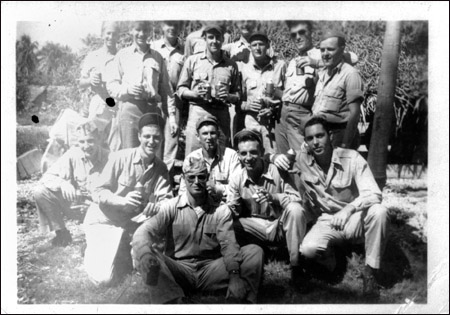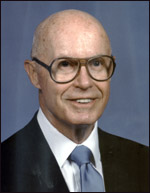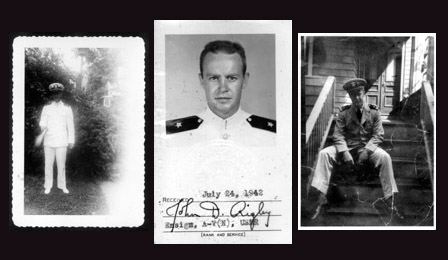At 83, he finishes his Harvard degree:
John Rigby completes his bachelor’s degree 62 years after starting it


On his first day at Harvard, John Rigby ’03 thought the place was a mess. The Yard was littered with branches, twigs, trash, and whole oak trees torn from the ground. Of course, there was a good reason for the carnage: Boston was just beginning to peek out from hiding after the great hurricane of Sept. 21, 1938.
Even at the time, Rigby was not your “typical” Harvard student. The Southie native’s father worked as a railroad claim adjuster, and though John had attended Thayer Academy, he had never considered making the river-crossing from South Boston to Cambridge.
“I had been leaning toward Boston College,” Rigby says from his office in St. Louis, Mo. “When I was at Thayer my senior year, the headmaster called me into his office and he just turned me toward Harvard. He said, ‘You can do this.’ It was a great motivator.”
So strong was Rigby’s motivation, in fact, that he completed his Harvard degree 62 years after starting it – despite the intervention of World War II and, well, life.
“I stayed three years,” he says of his initial foray into higher education. “But senior year I wanted to go into the Navy, for flight training. The war was just months away. The draft was starting to come around, and I had this crazy feeling – and I still think I was right – that I’d get better flight training if I went in then rather than after the war started.” Rigby took a leave from Harvard, intending to return after his tour of duty.

“I was going to get back into Kirkland House and everything was all set,” he recalls. “But then I met a gal out here in Missouri.” While socked in at St. Louis on a training flight, Rigby went out with a friend on a blind double date; he ended the night smitten, and married Mary Lawton just a few months later. Harvard became a distant memory as the couple settled in, with John working as an insurance agent and Mary as a homemaker. They had seven children, and are now the grandparents to 17 and the great-grandparents to two.
“I never really thought about going back,” Rigby maintains, though he did apply for academic credit for his wartime experience. “I thought I had enough for the degree, but a month later I got a letter saying, ‘You’re one-half a credit short.’” The residency requirement prevented his making up the credit in St. Louis. “That was kind of the end of doing anything. I considered it a done deal, just one of those loose ends.”
Until the two Jims came along. John’s son Jim Rigby and son-in-law Jim Olshefski got to talking one night, and eventually called Harvard to find out what John would need to do to finish his bachelor’s degree. The residence requirement remained an obstacle. “But I applied for a waiver,” John says, “and doggone if I didn’t get it. I guess they figured, ‘If this old goat wants it that bad, let’s help him along.’”
A call went out to every professor in the history department that there was an unusual student who lacked one credit, and wanted to do a long-range course during the summer session. “I was the only one to respond,” says Catherine A. Corman, an assistant professor in the history department. She adds that she did it because “it was the right thing to do. I thought if I had a parent who was in his position, this is how I would want him to be treated.”
Rigby completed a first-semester survey course of U.S. history by reading primary sources and e-mailing essays to Corman every week for six weeks. He will receive his baccalaureate this week at Kirkland House, at the age of 83, and his accomplishment seems to have touched everyone involved.
More than just American history, Rigby learned a life lesson. “You think about it afterwards,” he says, alluding to his years in Cambridge, “and there’s so much more you could have done than you did. You never really get to sit and enjoy a course, like I’ve done since. People don’t persevere much any more.”
His wife, Mary, points out that 20 family members will be attending his graduation. “The children and grandchildren,” she says, “we’re all so proud of him. It really shows that someone can accomplish something after a long time when they work at it and stick to it. A lot of people wouldn’t be courageous enough to take that step, but he did.”
Corman, too, found Rigby’s achievement inspiring. “I think what it showed me is that the joy of learning is not age-bound,” she says. “John did this not just for the institution, not for the degree, but for the material itself. There’s a wonderful carving on a gate at Pomona College, in Southern California [where she earned her B.A.], that says ‘Let only the eager, reverent, and thoughtful enter here.’ And about John I would add the word ‘spirited.’”




